Electronic music broadly is a group of music genres that employ electronic musical instruments, circuitry-based music technology and software, or general-purpose electronics in its creation. It includes both music made using electronic and electromechanical means. Pure electronic instruments depended entirely on circuitry-based sound generation, for instance using devices such as an electronic oscillator, theremin, or synthesizer. Electromechanical instruments can have mechanical parts such as strings, hammers, and electric elements including magnetic pickups, power amplifiers and loudspeakers. Such electromechanical devices include the telharmonium, Hammond organ, electric piano and electric guitar.
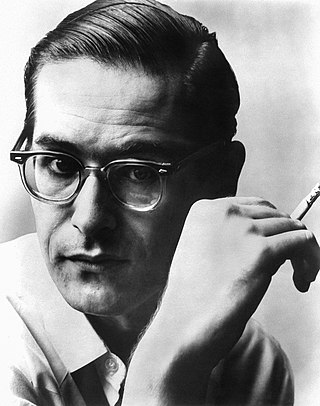
William John Evans was an American jazz pianist and composer who worked primarily as the leader of his trio. His use of impressionist harmony, block chords, innovative chord voicings, and trademark rhythmically independent, "singing" melodic lines continue to influence jazz pianists today.

Keith Jarrett is an American pianist and composer. Jarrett started his career with Art Blakey and later moved on to play with Charles Lloyd and Miles Davis. Since the early 1970s, he has also been a group leader and solo performer in jazz, jazz fusion, and classical music. His improvisations draw from the traditions of jazz and other genres, including Western classical music, gospel, blues, and ethnic folk music.

Danielson is an American rock band from Clarksboro, New Jersey, that plays indie pop gospel music. The group consists of frontman Daniel Smith and a number of various artists with whom he collaborates. Smith has also released solo work as Brother Danielson.

The Suzuki method is a mid-20th-century music curriculum and teaching method created by Japanese violinist and pedagogue Shinichi Suzuki. The method claims to create a reinforcing environment for learning music for young learners.

Francis John Tovey, known also by his stage name Fad Gadget, was a British avant-garde electronic musician and vocalist. He was a proponent of both new wave and early industrial music, fusing pop-structured songs with mechanised experimentation.

The Room's Too Cold is the debut studio album by the American rock band The Early November. Produced by Chris Badami, it was released on October 7, 2003 through Drive-Thru Records. It was co-produced by the lead singer - Arthur 'Ace' Enders. The album also features a guest appearance from Kenny Vasoli of The Starting Line, who was also signed to Drive-Thru at the time. The album peaked at number 107 on US Billboard 200.
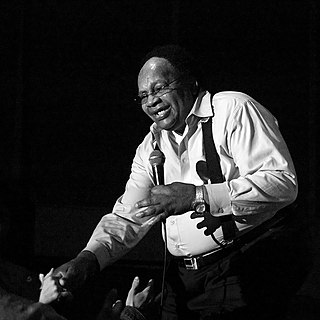
Howard Tate was an American soul singer and songwriter.

Liars is an Australian-American experimental rock band formed in Brooklyn, New York, in 2000. Angus Andrew is the founding and only constant member of Liars, currently joined by multi-instrumentalist Cameron Deyell and drummer Laurence Pike. Aaron Hemphill played with the band from its inception until his amicable departure from the project in 2017. Julian Gross joined the band for their second album They Were Wrong, So We Drowned in 2004, and played with the band until his departure in 2014. Liars have released ten studio albums and are signed to Mute Records. Stylistically, they combine elements of rock and punk with experimental electronica, with Andrew crediting influences such as Orchestral Manoeuvres in the Dark (OMD), The Cure, PJ Harvey, Underworld, The Doors and Michael Franks.

The music industry refers to the individuals and organizations that earn money by writing songs and musical compositions, creating and selling recorded music and sheet music, presenting concerts, as well as the organizations that aid, train, represent and supply music creators. Among the many individuals and organizations that operate in the industry are: the songwriters and composers who write songs and musical compositions; the singers, musicians, conductors, and bandleaders who perform the music; the record labels, music publishers, recording studios, music producers, audio engineers, retail and digital music stores, and performance rights organizations who create and sell recorded music and sheet music; and the booking agents, promoters, music venues, road crew, and audio engineers who help organize and sell concerts.
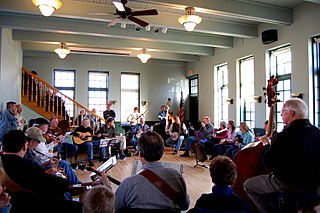
A jam session is a relatively informal musical event, process, or activity where musicians, typically instrumentalists, play improvised solos and vamp over tunes, drones, songs, and chord progressions. To "jam" is to improvise music without extensive preparation or predefined arrangements, except for when the group is playing well-known jazz standards or covers of existing popular songs. Original jam sessions, also called "free flow sessions," are often used by musicians to develop new material (music) and find suitable arrangements. Both styles can be used simply as a social gathering and communal practice session. Jam sessions may be based upon existing songs or forms, may be loosely based on an agreed chord progression or chart suggested by one participant, or may be wholly improvisational. Jam sessions can range from very loose gatherings of amateurs to evenings where a jam session coordinator or host acts as a "gatekeeper" so that appropriate-level performers take the stage to sophisticated improvised recording sessions by professionals which are intended to be broadcast live on radio or TV or edited and released to the public.
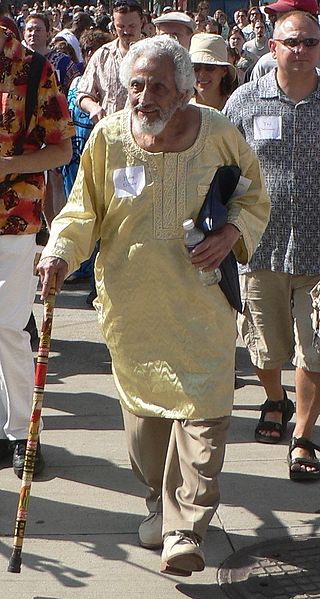
Halim Abdul Messieh El-Dabh was an Egyptian-American composer, musician, ethnomusicologist, and educator, who had a career spanning six decades. He is particularly known as an early pioneer of electronic music. In 1944 he composed one of the earliest known works of tape music, or musique concrète. From the late 1950s to early 1960s he produced influential work at the Columbia-Princeton Electronic Music Center.

Carlos Alomar is a Puerto Rican guitarist. He is best known for his work with David Bowie from the mid-1970s to the early 2000s, having played on more Bowie albums than any other musician.
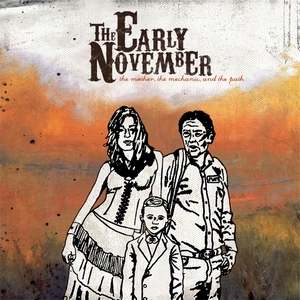
The Mother, the Mechanic, and the Path is The Early November's second studio album. The triple disc concept album was released on July 11, 2006, via Drive-Thru Records.

Arthur Carl "Ace" Enders III is an American musician. Enders is the lead singer and guitarist of the band The Early November. He is also the lead musician, songwriter and co-producer in his band, I Can Make a Mess Like Nobody's Business. He has also released music under the name Ace Enders and a Million Different People.
A studio recording is any recording made in a studio, as opposed to a live recording, which is usually made in a concert venue or a theatre, with an audience attending the performance.
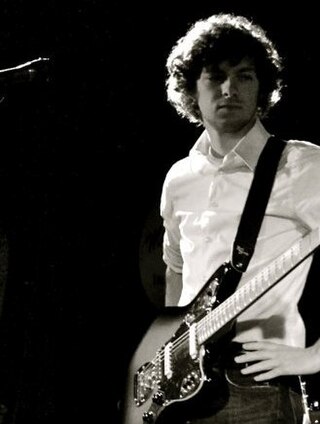
Pete Nischt is an American singer-songwriter and guitarist currently residing in Akron, Ohio. His music ranges from folk rock and pop rock to baroque pop and alt-country. He cites his biggest influences as Ryan Adams and the Red House Painters.

Jay Stapley is a British musician.
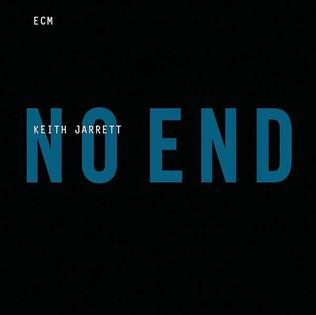
No End is solo album by American pianist and composer Keith Jarrett, credited to "Solo/Band," recorded in 1986 at his home studio in New Jersey and released on ECM in November 2013.
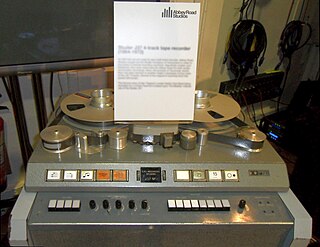
In music production, the recording studio is often treated as a musical instrument when it plays a significant role in the composition of music. Sometimes called "playing the studio", the approach is typically embodied by artists or producers who favor the creative use of studio technology in record production, as opposed to simply documenting live performances in studio. Techniques include the incorporation of non-musical sounds, overdubbing, tape edits, sound synthesis, audio signal processing, and combining segmented performances (takes) into a unified whole.

















